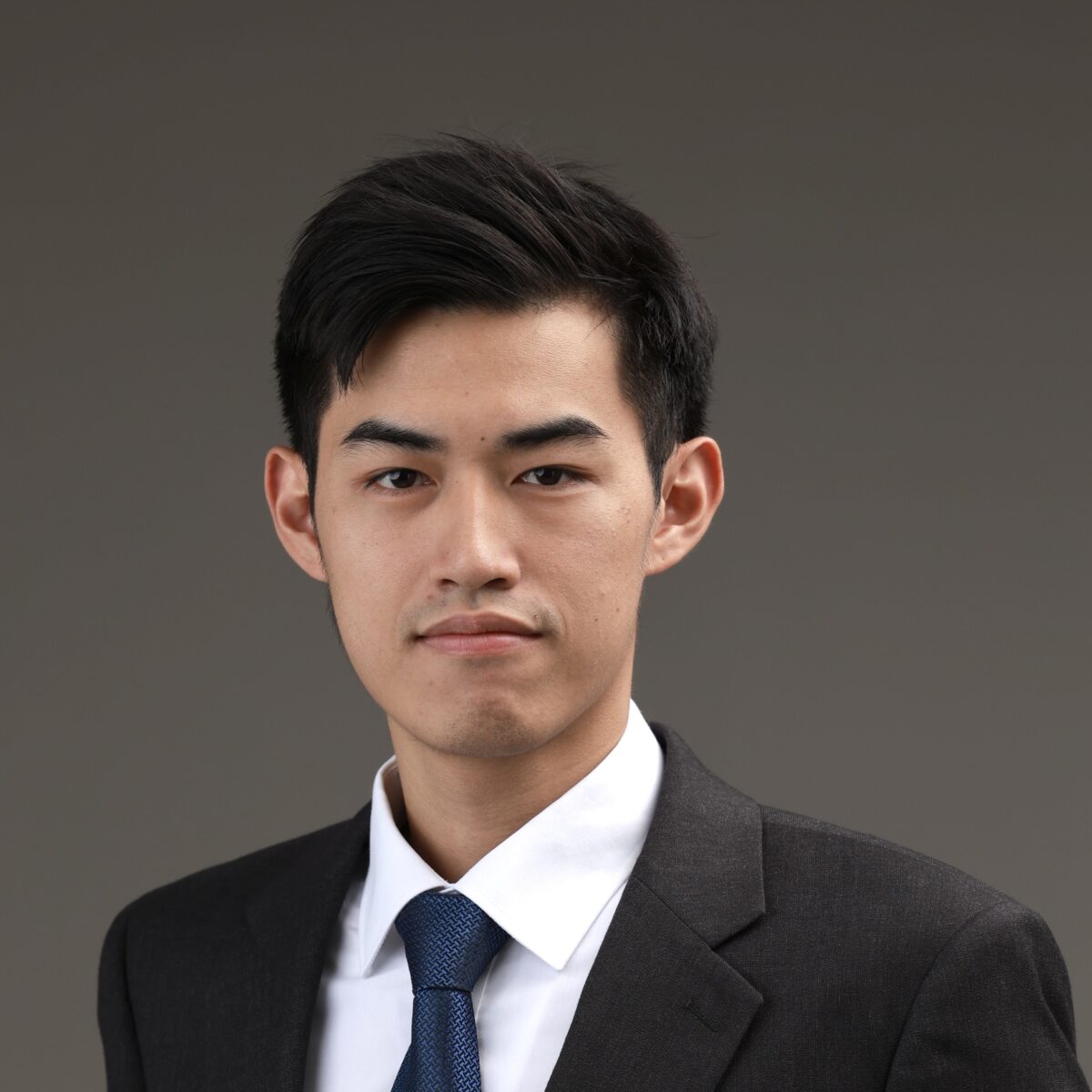The 2024 presidential election may be Taiwan’s most consequential
In January, Taiwan will select its next leader. The result will have consequences far beyond the borders of this self-governing island.

On January 13, 2024, Taiwan will hold its eighth presidential election amid intricate challenges, both domestically and internationally. At home, it is dealing with major issues of unaffordable housing, violent crime, and rising consumer expenses. Internationally, the self-governing island is caught between an intensifying U.S.-China competition and shifting regional geopolitics.
Against this backdrop of mixed and dire challenges, the upcoming election will play a crucial role in determining Taiwan’s future.
On election day, Taiwanese voters will cast their ballots at voting stations set up across the country. They will vote for their preferred presidential candidate, legislator candidate attached to their district, and party. The president will be selected through a simple majority mechanism without a run-off, with the results typically announced on the same day.
The presidential election coincides with the legislative election that will elect new members to the Legislative Yuan, which is the country’s top legislative body composed of 113 lawmakers. The election will lead to a reshuffle, with 73 elected through a simple majority vote in single-member constituencies, 34 through a proportional representation vote in a single island-wide constituency (including overseas compatriots), and six through a proportional representation vote in multi-seat aboriginal constituencies.
These lawmakers wield significant influence over Taiwan’s major policies, as they hold the power to oversee budgets in most policy initiatives, supervise governmental agencies’ operations, and propose and enact laws. The amount of seats each party holds after the election reflects the power and influence it has in Taiwan.
The Democratic Progressive Party (DPP) currently holds 62 seats, and has maintained a majority in the Legislative Yuan for the past seven years. Its main opposition party, the Kuomintang (KMT), has 37 seats, and will be seeking to regain a majority, which would allow the party to advance or stop major policy initiatives put forward by the ruling government.
The race as it currently stands
In the previous election in 2020, incumbent Tsai Ing-wen (蔡英文 Cài Yīngwén) of the DPP won by a landslide against Han Kuo-yu (韓國瑜 Hán Guóyú), the KMT candidate and mayor of Kaohsiung City. Tsai, who has served eight years, is not eligible for another term.
Next year’s race is expected to be much closer than 2020’s. The DPP suffered a significant setback in 2022’s local elections, and the public has been dissatisfied with the Tsai administration’s handling of domestic issues, resulting in its declining public support. This, coupled with heightened cross-strait tensions, creates a conducive environment for the KMT to go on the attack.
The big picture is still taking shape, but according to the latest poll release by United Daily News in May, Foxconn founder Terry Gou (郭台銘 Guō Táimíng) of the KMT leads with 29% support, followed by DPP chairman William Lai (賴清德 Lài Qīngdé) with 27%, then Taiwan People’s Party (TPP) chairman Ko Wen-je (柯文哲 Kē Wénzhé) with 23%.
There is another scenario where New Taipei City mayor Hou Yu-ih (侯友宜 Hóu Yǒuyí) replaces Gou as the KMT’s candidate; the numbers remain largely unchanged in that case, with Hou taking Gou’s 29%, followed by Lai’s 27%. Ko goes down to 22%. Hou has yet to declare his intention to run, though observers believe it’s only a matter of time before he does so.
Intrigue within the KMT
Unlike the DPP, which has officially nominated Lai as its presidential candidate, the KMT has not yet decided on its candidate.
Foxconn founder Gou has officially expressed interest in seeking the presidential nomination — though he isn’t the most popular candidate. The party nominated Han over him in 2019, causing him to lash out and resign out of frustration. “No amount of effort on my part could change the KMT’s culture of reactionary politics and backroom horse-trading,” Gou said in an official statement after resigning from the party. His words sparked anger among KMT politicians and supporters.
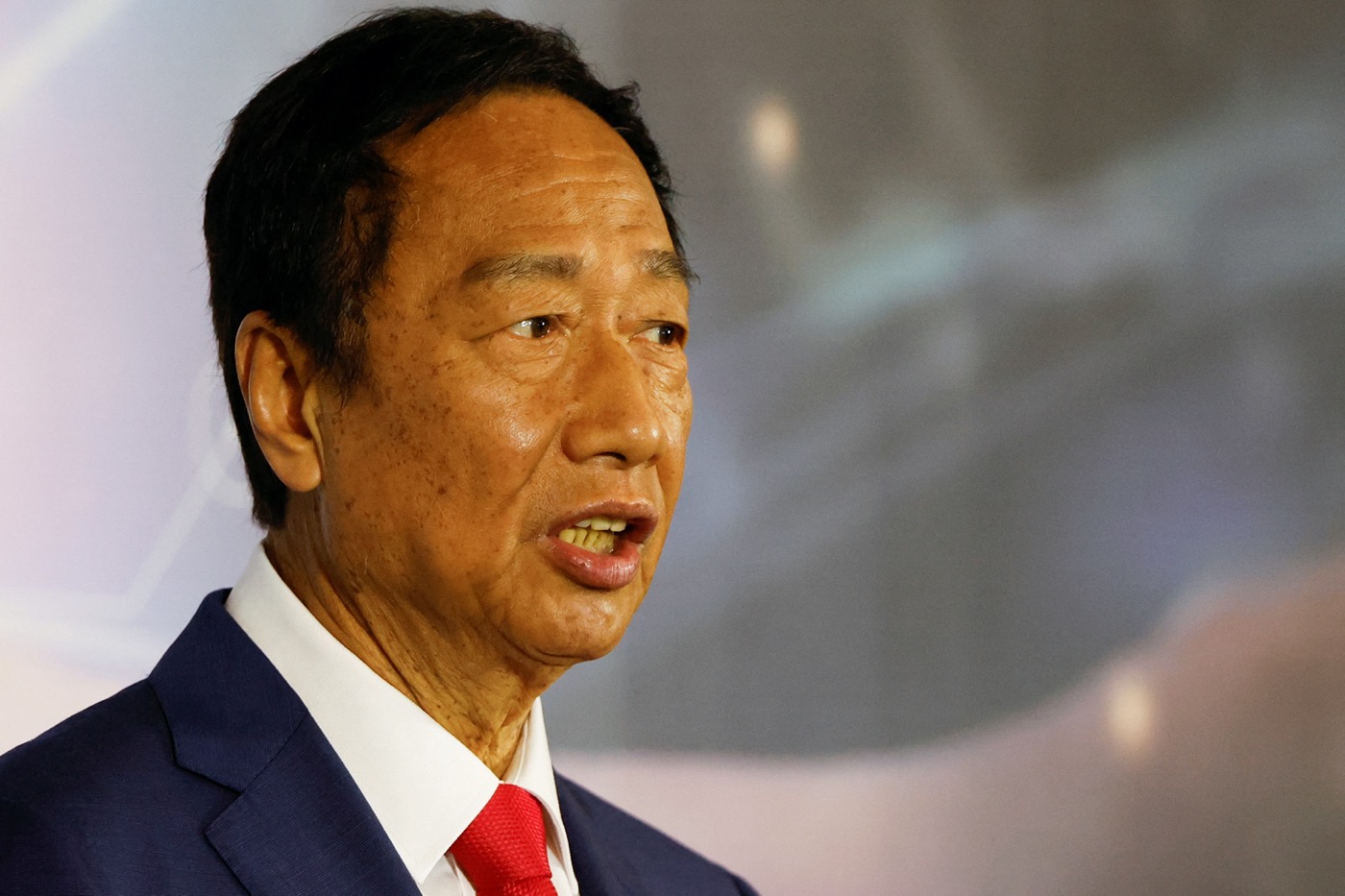
Additionally, he played a rather trivial role in helping the KMT in both the 2020 presidential election and the 2022 midterms, making him a less influential figure. Another issue is that he has not been officially approved to rejoin the KMT after his resignation, making him technically ineligible to be nominated.
It’s unlikely Gou will run as an independent due to the resources needed to win a national-level election. Gou has been campaigning actively both at home and abroad, seeking to regain support from KMT’s supporters and demonstrate his international vision.
Meanwhile, Hou has strong support within the KMT and nationwide, maintaining momentum from his midterm mayoral victory. A recent poll indicates that 51% of KMT supporters favor Hou as the party’s presidential candidate, while only 33% support Gou.
The problem with Hou running for president is that he currently holds the position of mayor. If he wins the presidential race, he would have to resign that position. This might not sit well with the public. A March poll showed that more than half of respondents believed it was inappropriate for Hou to participate in the presidential election right after being reelected as New Taipei mayor.
As a result, Hou has been cautious in announcing his intention to join the KMT’s “nomination race,” which could send a signal to the voters that he is willing to abandon his obligations of running New Taipei. In the 2020 presidential election, then Kaohsiung mayor Han Kuo-yu came under furious attack after his decision to run for president a few months after prevailing in the mayoral election.
Despite this, observers believe Hou will eventually seek the presidency. When asked by reporters whether he is ready to accept the nomination, Hou said, “One thing about me, I have always prepared myself to face all kinds of challenges so I can readily tackle them when I am called up.”
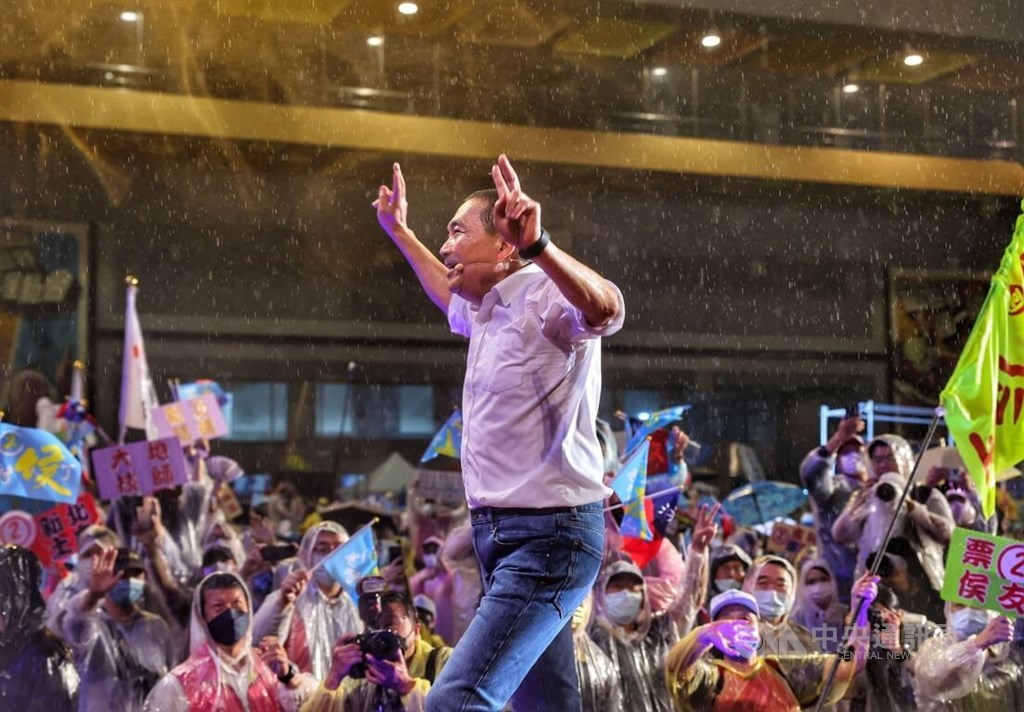
The KMT’s nomination process is as follows: Chairman Eric Chu (朱立倫 Zhū Lìlún) has the authority to nominate a suitable KMT figure after assessing opinions within the party. If the candidate accepts the nomination, he will become the official KMT presidential candidate. There is no public run-off. The result is likely to be announced before June, according to the latest report.
In private, Chu has reportedly expressed his intention to nominate Hou. Secretary General Justin Huang (黃健庭 Huáng Jiàntíng) was more explicit on April 13, saying, “The situation now within the party is pretty clear, it wants Hou to be nominated.”
Hou’s strong support within the party is partly attributed to his landslide victory in 2022. He has consistently maintained a high approval rating and has supported many KMT politicians at both the local and national levels. Compared with Gou, who is a political newcomer, Hou and his team possess a wealth of election experience and years of political acumen.
The DPP’s story is more clear-cut: It remains united in endorsing its presidential candidate. William Lai obtained 99% of the vote in the party’s chairman election in January. The party’s unity is widely considered one of the vital elements in a presidential election, as it helps the candidate to consolidate its party’s supporters in the campaign.
The role of the TPP
Even if the KMT successfully unites behind one candidate, the most daunting task that follows will be to coalesce the broader opposition and independent voters. The KMT’s top priority is to persuade TPP’s candidate, Ko Wen-je, to withdraw from the presidential contest and endorse the KMT candidate. Ko’s base is mostly made of independent voters and KMT-leaning voters. But it won’t be easy convincing Ko to drop out.
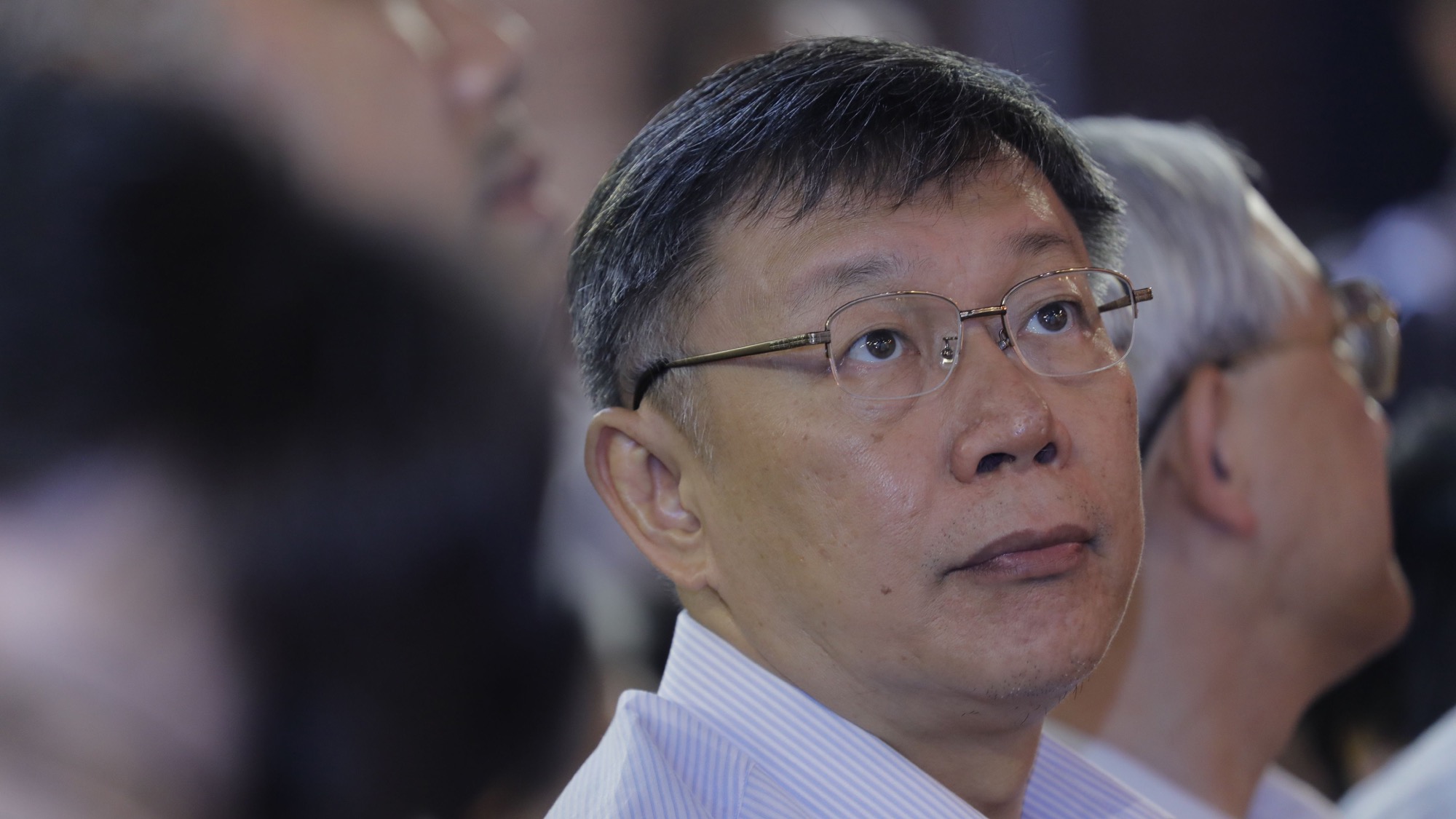
Ko founded the TPP in 2019 with the aim of preparing for the 2020 and 2024 presidential elections. Ko did not participate in the 2020 presidential election due to his position as Taipei’s mayor and the fact that his party was still in its early stages of development.
The TPP has established itself as a third force within Taiwanese politics, holding five legislative seats in the Legislative Yuan. In the 2022 local election, the TPP won 15 state councilors’ seats, a net gain for the TPP’s local influence. Its then legislator Ann Kao (高虹安 Gāo Hóng’ān) won the mayoral election in Hsinchu, the so-called Taiwan’s Silicon Valley.
Now Ko is more determined than ever to run, as he believes that neither the DPP nor the KMT can provide the desired future for Taiwan. He seeks to change the negative culture of two-party politics and the abuse of ideology. He also talks about building a government coalition and increasing governmental efficiency. Yet at this early stage of the election, the details of his policy initiatives remain vague.
Ko is reportedly preparing to officially announce his presidential run on May 20 after his party formally nominates him. Afterward, the party is anticipated to unveil a “policy white paper” detailing his proposed policies in areas such as national security and industrial development.
“It is improbable that Ko will serve as the vice president under the KMT’s candidate, which makes cooperation between the TPP and the KMT less likely,” Ji Shun-jie (紀舜傑 Jì Shùnjié), a longtime political watcher and an associate professor of Futures Studies at Tamkang University in Taiwan, told The China Project. “Despite the fact that Ko is unlikely to win the presidential election, he aims to use the election to expand the TPP’s political influence in the Legislative Yuan by gaining enough legislative seats to become an ‘influential minority.’”
What’s at stake
Taiwan’s presidential election is heavily influenced by foreign policy due to its unique geopolitical environment. Tsai’s decisive win over Han in 2020 was partly attributed to her hawkish policy toward China, echoing voters’ growing concerns over China’s increasingly assertive behavior toward Taiwan and political repression in Hong Kong.
As the 2024 election approaches, candidates are beginning to outline their foreign policy positions. The DPP candidate, Lai, has emphasized a strong stance against China and close alignment with the United States. It seems his early foreign policy guidelines will follow in the footsteps of Tsai’s. He has publicly endorsed Tsai’s “four commitments” in foreign policy several times.
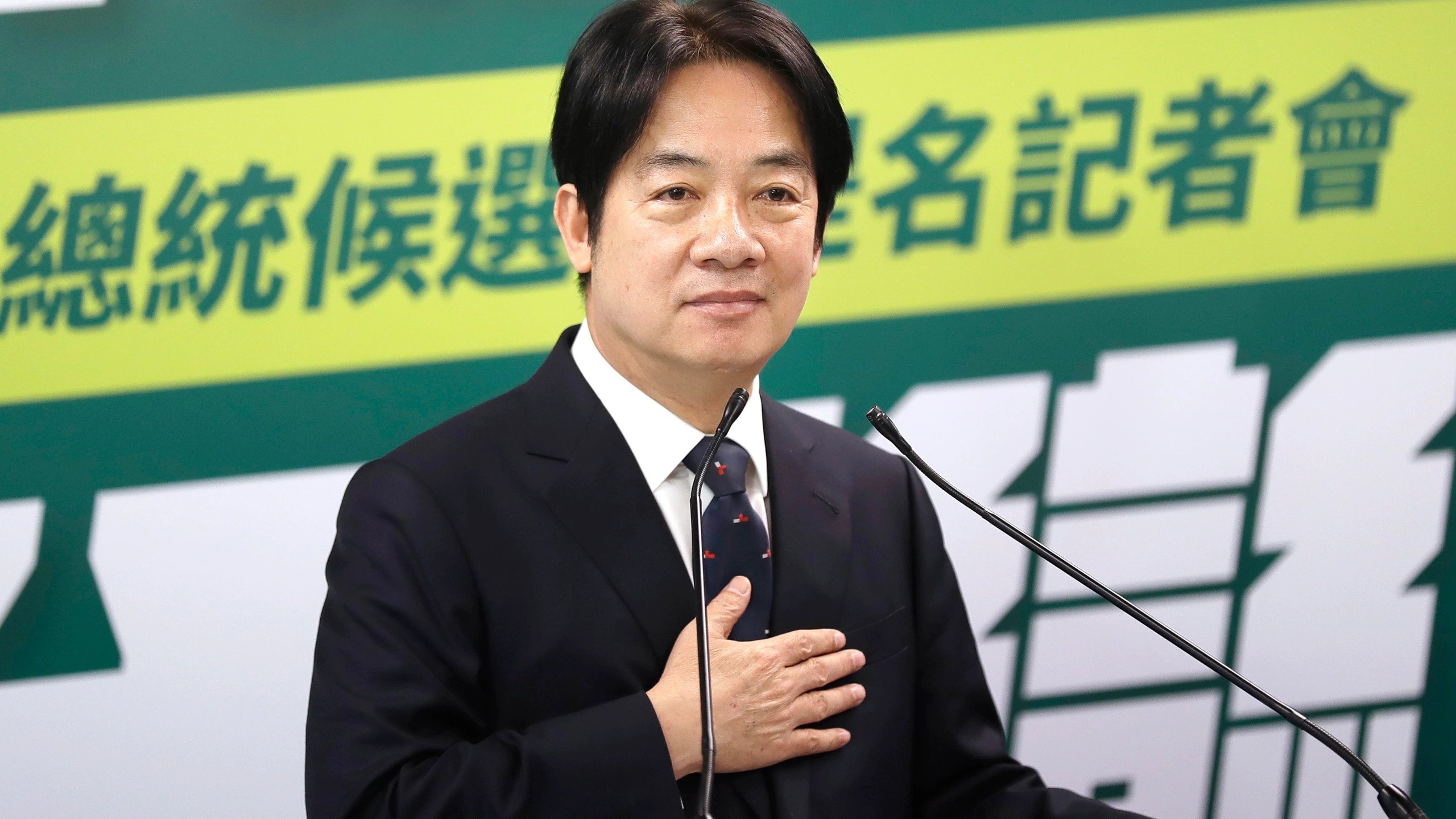
Either way, Lai’s foreign policy stance has sparked concerns both in Washington and Taipei. The U.S. government reportedly worries that Lai’s hawkish policy toward China and strong stance on Taiwan’s independence could escalate tensions across the strait and strain U.S.-China relations, as Taiwanese independence is a clear red line for Beijing.
In recent months, Lai has downplayed his past as a “pragmatic worker for Taiwan independence” and his hawkish stance on China. Instead of using “Resist China and protect Taiwan” as his policy rhetoric, Lai shifted his policy to “Peacefully protect Taiwan,” attempting to assure Taiwanese that his policy will result in peace rather than confrontation.
“As long as the U.S. believes that Lai will not take practical steps toward independence, such as renaming the country or amending the national constitution, his policy should not be a major issue,” Ji said.
It is possible that Lai and the DPP are more concerned about the public’s dissatisfaction with domestic issues. The recent egg shortage crisis is just the latest example. If voters continue to see housing prices go up or crime, it could hurt Lai’s chances. It’s worth noting that the DPP’s dramatic loss in last November’s election was mainly due to its underperformance in the domestic sphere.
Meanwhile, KMT leaders have tended to employ a flexible policy toward China anchored by the “1992 consensus,” which is a concept not favored by the majority of Taiwanese. To that end, Hou has been reluctant to publicly champion it. “Hou may not be an international relations expert, but his stance will not exceed the boundary of [the KMT’s recent policy slogan of] ‘Lean on the U.S., Befriend Japan, Reconcile with Mainland China’ (親美, 友日, 和陸 qīn měi, yǒu rì, hé lù),” said Yi-Fan Chen, an assistant professor of diplomacy and international relations at Tamkang University. “Hou is a strong defender of the Republic of China’s Constitution, which is an element underpinning his cross-strait policy.”
Ko’s foreign policy, on the other hand, is confusing. Since the TPP is a relatively new party, its policies haven’t been clearly outlined. Additionally, Ko has fewer experts and scholars advising him on policy matters. Furthermore, Ko himself has little experience in dealing with foreign policy matters and was widely criticized for his lack of core values in cross-strait relations and foreign policy. Notably, it appears that Ko has recognized a need to strengthen this part of his campaign. He recently visited the United States for three weeks, part of a tactic to elucidate his foreign policy stance to observers in both countries.
The Taiwanese election is poised to not only shape the fate of 23 million Taiwanese, but also have a profound implication on regional and global affairs. The international community will be watching.
